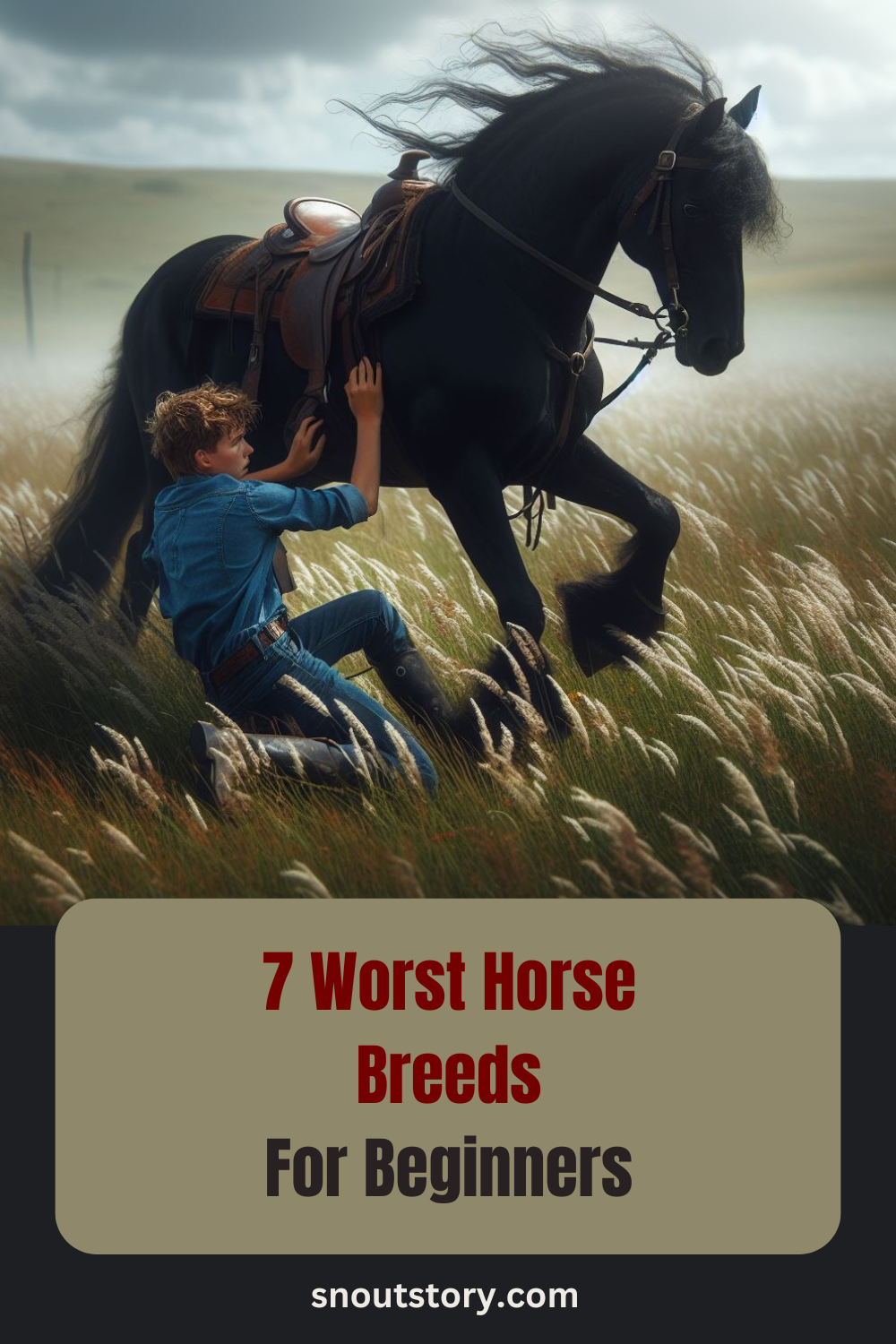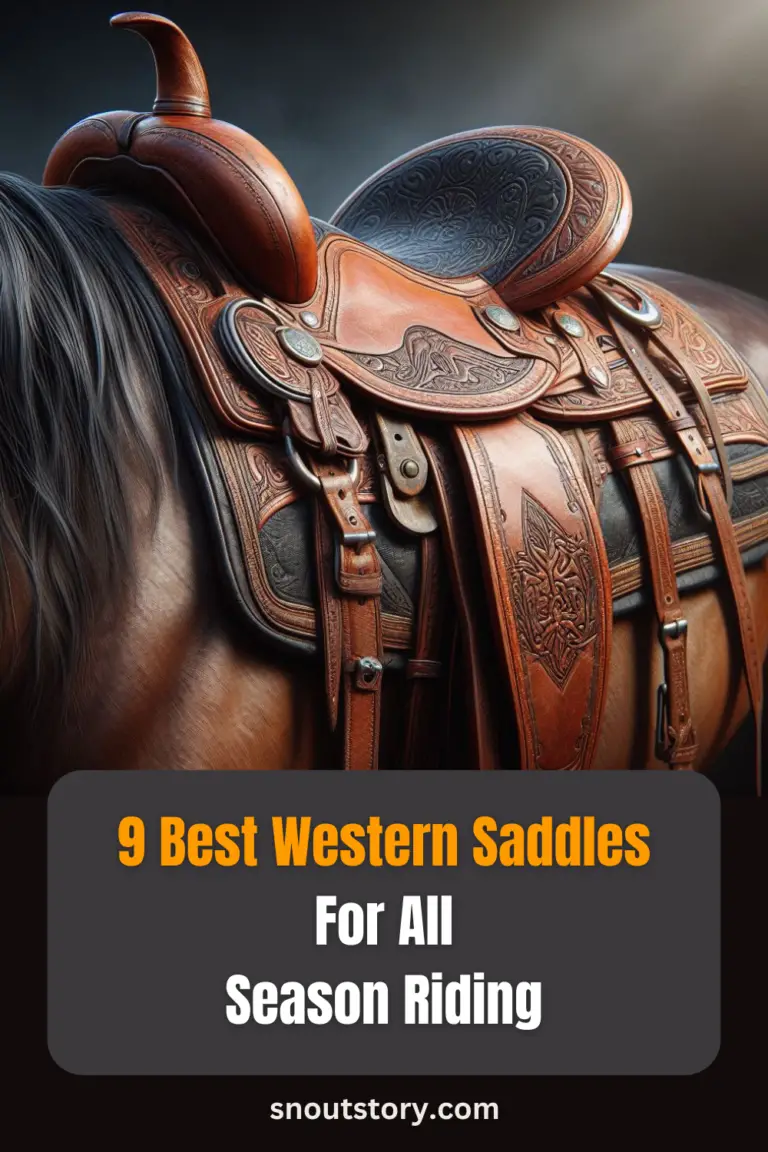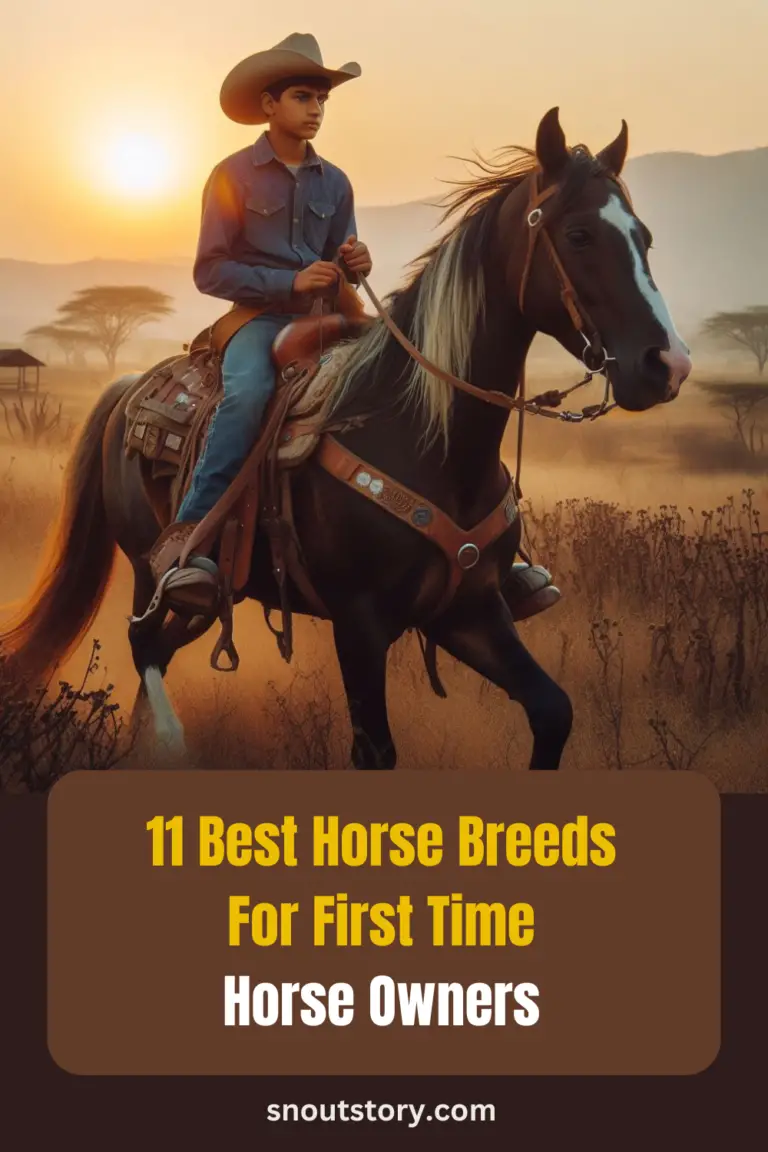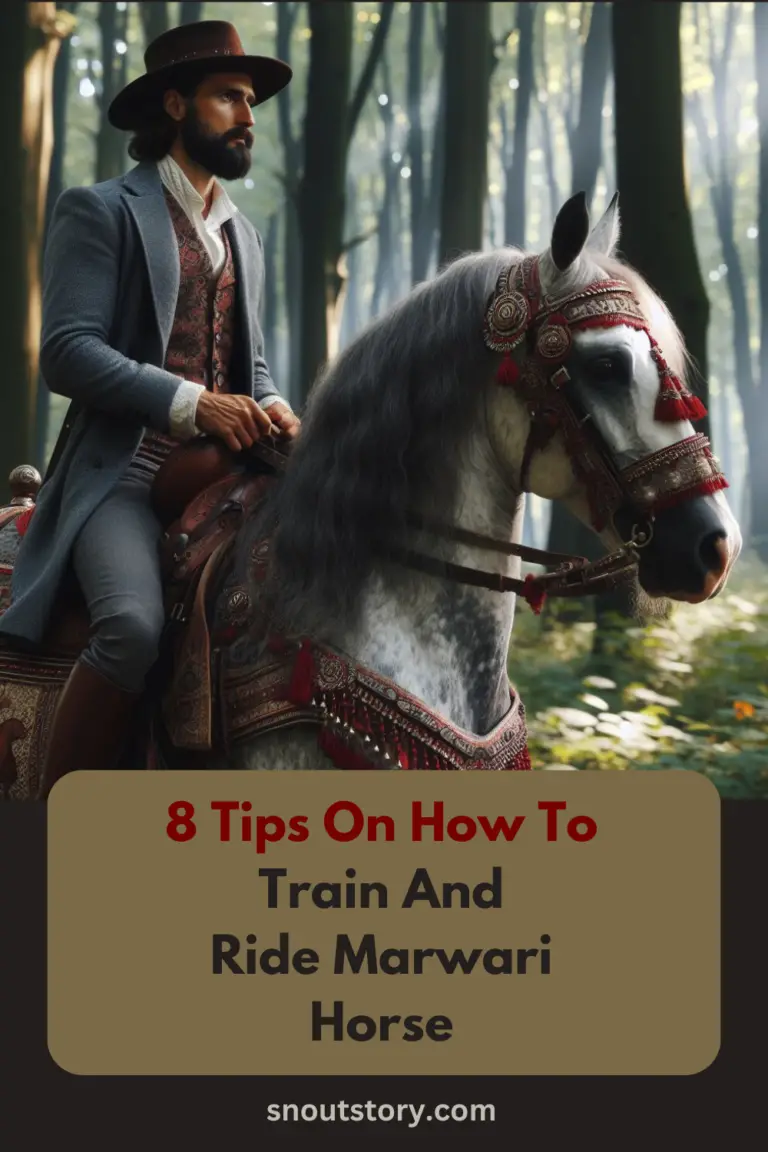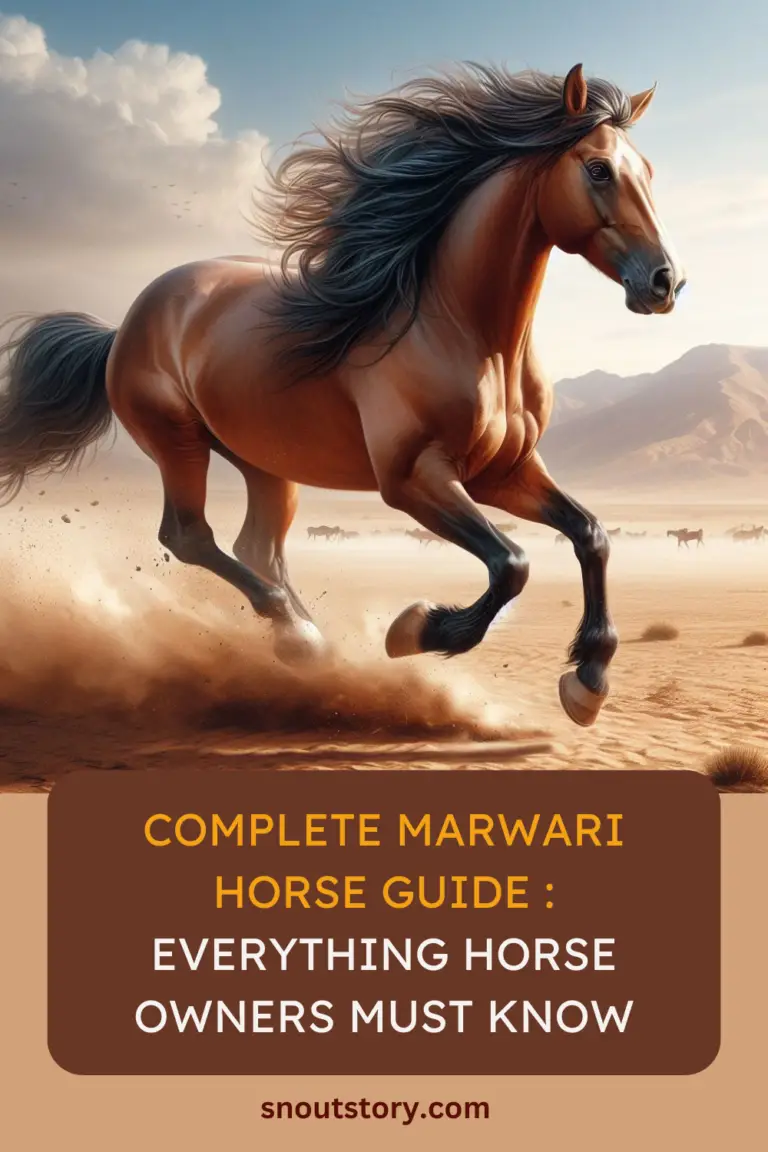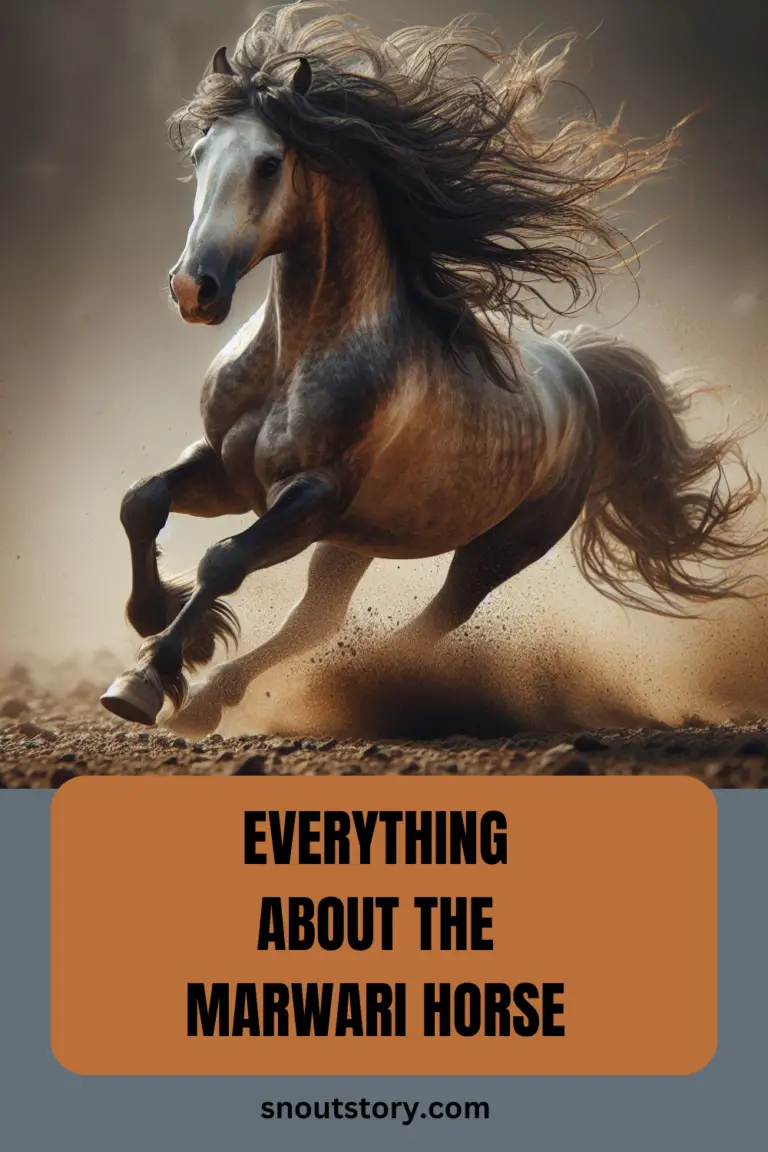Embarking on the journey of horse ownership is an exciting venture, but it’s essential to choose the right breed, especially for beginners. While many horse breeds are suitable for novice owners, some may present more challenges than others due to temperament, energy levels, or specific care requirements.
In this guide, we’ll explore seven horse breeds that may be considered less ideal for beginners, offering insights into their characteristics and why they might pose challenges for those new to horse ownership.
Whether you’re considering your first horse or looking to expand your equestrian knowledge, understanding the potential complexities of certain breeds can help you make informed decisions and ensure a fulfilling experience with your equine companion.
Factors To Consider While Choosing Your First Horse As A Beginner
- Temperament: Consider the temperament of the horse, as some breeds may be more spirited or high-strung, which can be challenging for beginners to handle.
- Energy level: Assess the energy level of the breed, as some horses may require more exercise and mental stimulation than others, making them less suitable for novice owners.
- Size and strength: Take into account the size and strength of the horse, as larger breeds may be more difficult to manage, especially for inexperienced riders.
- Training requirements: Evaluate the training requirements of the breed, as some horses may need more consistent and specialized training to develop good manners and obedience.
- Maintenance needs: Consider the maintenance needs of the horse, including grooming, feeding, and healthcare requirements, as certain breeds may have more demanding care needs that can be overwhelming for beginners.
- Riding discipline: Determine the riding discipline you’re interested in, as certain breeds may be better suited for specific disciplines, and choosing a breed aligned with your goals can enhance your riding experience.
- Budget: Calculate the costs associated with owning a horse, including purchase price, boarding or stable fees, veterinary care, and equipment expenses, as some breeds may be more expensive to own and maintain than others.
Let’s See The 7 Worst Horse Breeds For Beginners and First Time Owners That They Should Avoid At All Costs
7. Akhal-Teke
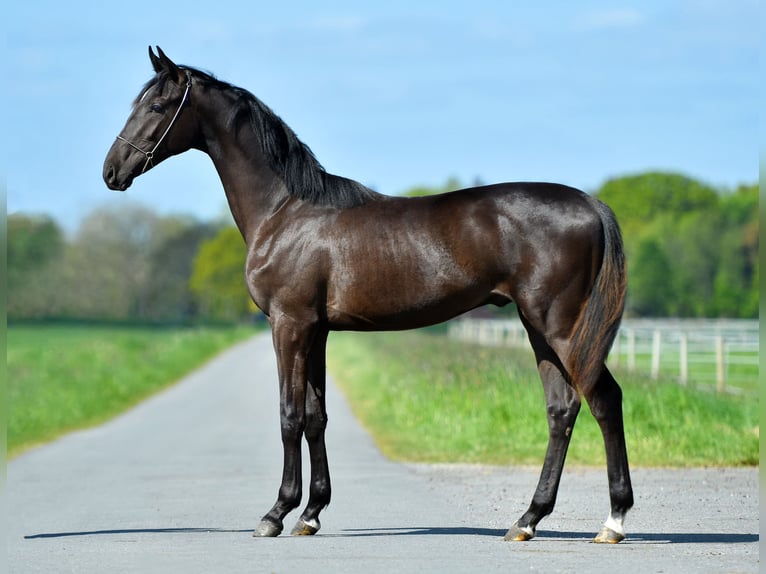
The Akhal-Teke horse is truly a magnificent breed known for its stunning appearance and exceptional performance abilities. With their sleek coats and elegant conformation, these horses capture the attention of many equine enthusiasts.
However, for first-time owners, the Akhal-Teke may present some challenges that make them less than ideal for inexperienced handlers. One notable aspect is their spirited and sensitive temperament, which requires patient and skilled handling. Additionally, Akhal-Teke’s tend to be high-energy and intelligent, requiring consistent training and mental stimulation to keep them engaged and well-behaved.
Their unique care needs, such as specialized grooming and nutritional requirements, may also be daunting for newcomers to the world of horse ownership. While the allure of the Akhal-Teke is undeniable, prospective first-time owners should carefully consider their level of experience and readiness for the demands of this remarkable breed before taking on the responsibility of caring for one.
| Akhal-Teke | Average Height (in hands) | Average Weight (in pounds) |
|---|---|---|
| Male | 15-16 hands | 900-1,100 lbs |
| Female | 14-15 hands | 800-1,000 lbs |
6. Marwari Horse
:strip_icc()/GettyImages-1211372308-08b5641bdd834ed3bb31e8622ba88002.jpg)
Marwari horses are known for their elegance, intelligence, and versatility, making them an attractive choice for many equestrians, including beginners. However, despite their admirable qualities, first-time horse owners should approach the idea of owning a Marwari horse with caution.
One primary reason is their spirited nature and high energy levels, which may be challenging for inexperienced handlers to manage effectively. Additionally, Marwari horses are known for their sensitivity and require gentle, patient training methods. Their unique physical characteristics, such as their distinctive ears, also require specialized care and attention.
Furthermore, Marwari horses are known to form strong bonds with their owners, which can be rewarding but also demanding for those new to horse ownership. Therefore, while Marwari horses can be suitable for beginners under the guidance of experienced mentors or trainers, novice owners should be prepared for the responsibility and commitment required to care for these magnificent animals.
Read More About Marwari Horse
THE MARWARI HORSE: A Complete Breed Guide (CLICK HERE TO READ)
8 TIPS ON HOW TO TRAIN AND RIDE MARWARI HORSE (CLICK HERE TO READ)
| Marwari Horse | Average Height (in hands) | Average Weight (in pounds) |
|---|---|---|
| Male | 14.2 – 15.2 | 900 – 1100 |
| Female | 14.1 – 15.1 | 800 – 1000 |
5. American Saddlebred

The American Saddlebred, with its majestic appearance and graceful movements, is often admired for its beauty and versatility in the show ring. However, while they can be incredibly rewarding for experienced equestrians, first-time horse owners should approach the idea of owning an American Saddlebred with caution.
One reason for this is their spirited nature and high energy levels, which may be overwhelming for novice handlers to manage effectively. Additionally, American Saddlebreds require consistent training and exercise to channel their energy positively, and their sensitive temperament means they respond best to gentle, patient handling.
Furthermore, their elegant appearance often leads to high grooming and maintenance requirements, which may be more than inexperienced owners anticipate.
Therefore, while the American Saddlebred can be a fantastic partner for those with the knowledge and experience to handle them, first-time owners should carefully consider their readiness for the commitment and responsibility that comes with caring for this breed.
| American Saddlebred | Average Height (hands) | Average Weight (lbs) |
|---|---|---|
| Male | 15.2 – 16.2 | 1000 – 1200 |
| Female | 15.0 – 16.0 | 900 – 1100 |
4. Thoroughbred
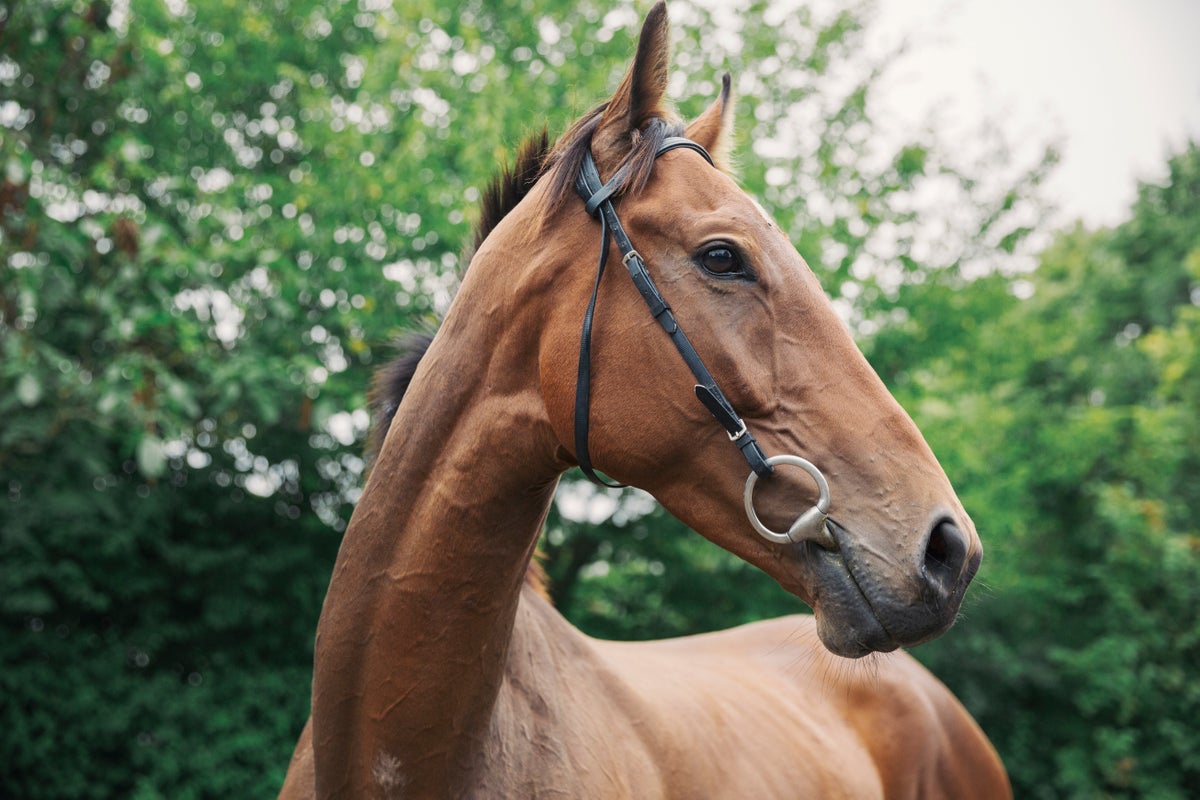
While Thoroughbreds are renowned for their athleticism, speed, and versatility, first-time horse owners should exercise caution when considering them as their first equine companion.
Despite their many positive qualities, Thoroughbreds can pose challenges for inexperienced handlers due to their high energy levels, sensitivity, and spirited nature. These horses are bred for racing and often require experienced riders to manage their athleticism and temperament effectively.
Moreover, Thoroughbreds may have specific dietary and exercise needs that novice owners may find daunting to meet. Additionally, their predisposition to certain health issues, such as orthopedic injuries and gastric ulcers, could require advanced knowledge and resources for proper care.
While Thoroughbreds can undoubtedly excel under the guidance of knowledgeable equestrians, first-time owners may benefit from starting with a breed known for its calm disposition and forgiving nature.
| Thoroughbred | Average Height (hands) | Average Weight (lbs) |
|---|---|---|
| Male | 16 – 17 | 1000 – 1200 |
| Female | 15.2 – 16.2 | 900 – 1100 |
3. Andalusian Horse
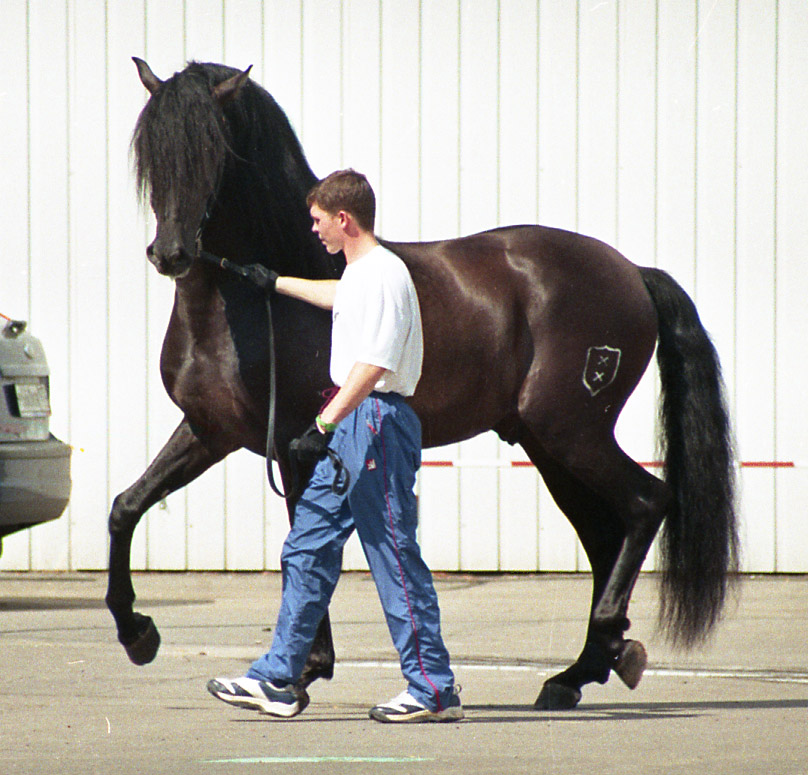
The Andalusian horse, renowned for its elegance and intelligence, possesses traits that may not be ideal for first-time owners. While these horses are celebrated for their beauty and versatility, their spirited nature and strong-willed temperament can pose challenges for inexperienced handlers.
Andalusians are known for their sensitivity and require consistent, patient training from someone with a firm yet gentle approach. Their high energy levels and intelligence demand an owner who can provide ample mental and physical stimulation to prevent boredom and behavioral issues.
Additionally, their natural athleticism and strength necessitate skilled handling to ensure safe and effective training. Therefore, while Andalusians can be rewarding companions for experienced equestrians, first-time owners may find their unique characteristics better suited to a more seasoned handler.
| Andalusians | Average Height (in hands) | Average Weight (in pounds) |
|---|---|---|
| Male | 15.2 – 16.2 | 1000 – 1200 |
| Female | 15.0 – 16.0 | 900 – 1100 |
2. Friesian Horse

While Friesian horses are undeniably stunning and possess a majestic presence, they may not be the most suitable choice for first-time horse owners. Their towering stature, often reaching heights of 15 to 17 hands, combined with their powerful build and spirited temperament, can pose challenges for inexperienced handlers.
Friesians are known for their high energy levels and can be sensitive to subtle cues, requiring skilled and confident handling. Additionally, their luxurious mane and feathered legs demand meticulous grooming and maintenance, which may be overwhelming for beginners. Furthermore, Friesians have specific dietary and exercise needs to maintain their health and fitness, necessitating a deep understanding of equine care.
While they can form strong bonds with their owners and excel in various disciplines, including dressage and driving, their complex nature and care requirements make them better suited for experienced equestrians who can provide the attention and expertise these magnificent animals deserve.
| Friesian Horse | Average Height (hands) | Average Weight (lbs) |
|---|---|---|
| Male | 15.3 – 17.0 | 1400 – 1600 |
| Female | 15.1 – 16.3 | 1200 – 1400 |
1. Mustang or Mustang Horse
:strip_icc()/GettyImages-1019461046-7096d0b574c94d0ab320b8b9fcdd5876.jpg)
The Mustang horse, known for its wild and free-spirited nature, presents unique challenges for first-time owners. While these horses possess remarkable strength, agility, and resilience, they are typically not recommended for novice owners due to their independent and sometimes unpredictable behavior.
Mustangs are descendants of domesticated horses that have returned to the wild, resulting in instincts and behaviors that differ significantly from those of traditionally trained horses. Their strong survival instincts can make them resistant to human handling and training, requiring experienced and patient handlers to establish trust and build a bond.
Additionally, Mustangs may exhibit behaviors such as skittishness or resistance to confinement, making them challenging for inexperienced owners to manage safely. For those new to horse ownership, it’s advisable to begin with a breed known for its calm temperament and suitability for beginners, allowing for a smoother transition into horse ownership and management.
| Mustang Horse | Average Height (hands) | Average Weight (lbs) |
|---|---|---|
| Male | 14-15 | 800-1,200 |
| Female | 13-14 | 700-1,000 |
Here’s The list of 11 Best Horse Breeds For Beiginners (Read More To Make A Informed Decision About Your companion)
Summary – 7 Worst Horse Breeds for Beginners
In conclusion, while horses can make wonderful companions, it’s crucial for beginners to consider the breed carefully before making a choice.
This article has highlighted seven horse breeds that may present challenges for novice owners due to various factors such as temperament, energy level, or specialized care requirements.
However, by conducting thorough research, seeking guidance from experienced equestrians, and considering individual needs and preferences, beginners can find the perfect equine partner that matches their skill level and lifestyle.
Ultimately, selecting the right horse breed as a beginner is paramount for ensuring a fulfilling and safe equestrian journey.
Recommended
9 Best Horse Western Saddles For All Season Riding (Review and Buyers Guide)
11 Best Horse Breeds for Beginners (Easiest To Train)
8 Tips On How To Train And Ride Marwari Horse
Marwari Horse Care Tips (Every New Owner Must Know)
The Marwari Horse: A Complete Breed Guide
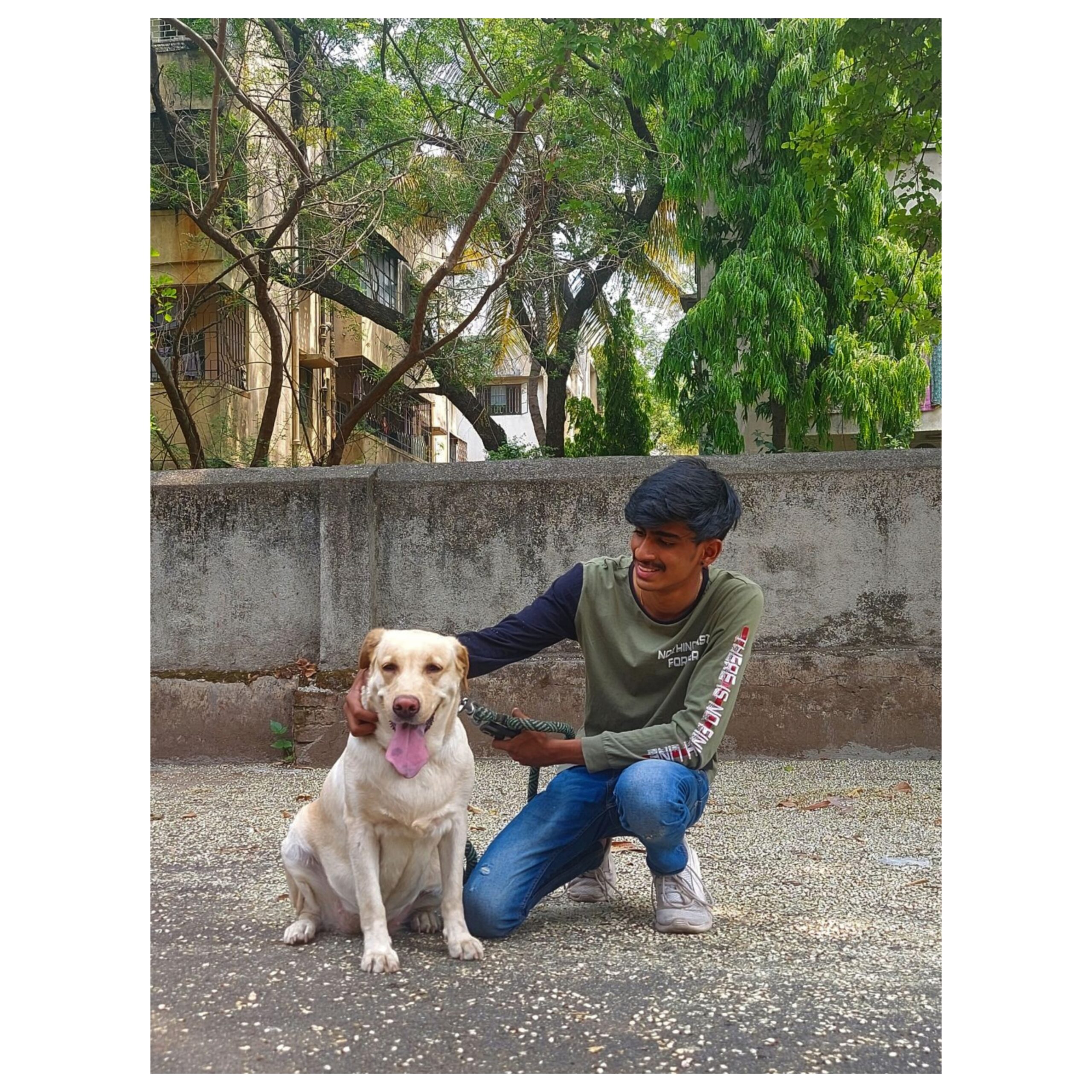
Vedant Narvekar is an experienced digital marketing expert with a profound love for nature and animals. With a career rooted in leveraging online platforms to drive engagement and promote meaningful causes, Vedant’s passion for animals inspired him to start Snout Story—a blog dedicated to educating people about pet keeping and sharing proper knowledge about caring for animals. Drawing on his expertise in digital marketing, Vedant utilizes his platform to advocate for responsible pet ownership, providing valuable insights on pet care, training, nutrition, and more. Through Snout Story, Vedant aims to empower pet lovers with the information they need to provide the best possible care for their furry companions, while also fostering a deeper appreciation for the natural world and the creatures that inhabit it.

